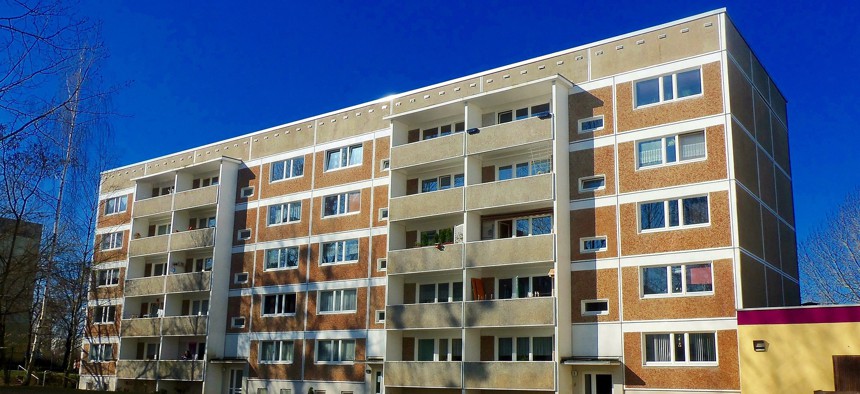Policy
Is removing rent controls part of the answer to Florida’s housing crisis?
Bills this year are meant to increase affordable housing availability – but also remove local authority.

Image by WikimediaImages from Pixabay
Amid Florida’s rent crisis, Republican leadership in the Florida Legislature have backed bills to decrease prices by increasing housing supply, but the legislation also strips municipalities’ ability to enact rent controls, among other regulations.
It’s worth noting one top Senate Democrat called rent control “socialism,” however.
Florida rents have increased, on average, 36% across the state from the beginning of 2020 to the end of 2022 – the same time as the COVID pandemic. In many cases, the same listed apartments have shot up hundreds of dollars per month across just one calendar year.
So, as rent has skyrocketed, cities and counties have begun enacting their own solutions. Fifty-nine percent of Orange County voters supported a rent control ordinance capping increases to the Consumer Price Index, although it has yet to come into effect because of pending litigation.
Several local governments, including Miami-Dade County and Hillsborough County, passed Tenant Bill of Rights ordinances meant to provide more notice about rent increases and other protections.
But Florida’s Republican-controlled legislature seems set on enacting their own solutions to the crisis with three bills containing provisions that would prohibit local action:
* The “Live Local” Act (SB 102, HB 627)
This legislation is championed by Senate President Kathleen Passidomo and has support on both sides of the aisle. The idea is to bolster workforce housing by providing people more opportunities to live close to where they work.
It uses $711 million in state money to fund the state’s existing affordable housing programs, including $252 million to the State Housing Initiatives Partnerships (SHIP) program, $259 million to the State Apartment Incentive Loan (SAIL) program, and $100 million to the Hometown Heroes program while expanding eligibility.
But it also bans local governments from enacting rent control ordinances, though it does allow property tax exemptions for developers that create affordable housing.
* Residential tenancies (SB 1586, HB 1417)
This legislation expands the amount of notice landlords are required to give tenants with rent increases or when their lease will not be renewed, but prohibits local authorities from regulating any aspect of the landlord-tenant relationship, preempting any local tenant bill of rights or similarly-named protections. (As the Legal Information Institute explains, preemption “refers to the idea that a higher authority of law will displace the law of a lower authority of law when the two authorities come into conflict.”)
* Fees in Lieu of Security Deposits (SB 494, HB 133)
Provides tenants the option to pay a monthly fee instead of paying a one-time security deposit up front. However, the monthly fee is not returned if there are no damages, and does not offer protections for tenants for damages.
This year’s bills would circumvent protections in largely Democratic-leaning counties
The preemptions in this year’s bills would most affect Democratic-leaning counties with robust tenant protections. For instance, Orange County is one of the few counties that backed Charlie Crist in the 2022 gubernatorial election, and the Miami-Dade County Commission has a Democratic-leaning majority.
But those in Democratic legislative leadership have supported at least some of the preemptions. SB 102 passed the Senate unanimously, including support from Senate Democratic Leader Lauren Book and her successor, Senate Democratic Leader-designate Jason Pizzo.
Other Senate Democrats applauded the bill before voting to pass it, such as Sen. Bobby Powell of West Palm Beach. “We will be able to look back and say that we were the ones in this body that had the opportunity to change housing, not just in the state of Florida, but how it's done throughout the nation because of the example we set here today,” he said.
Pizzo had strong criticism for those that favor rent control. “If anyone ever tells you or gives you a hard time that there should be rent control, you can first start out by saying it is socialism,” he said. “And the second thing you should say is, unless you are prepared to compensate a landlord when the market is soft, to cover their debt service, their insurance, their taxes and their carrying costs, they shouldn't speak of it.”
Still, members of his party in the House don’t support the bill’s companion there because of the rent control preemption. State Rep. Anna Eskamani, who represents part of Orange County, voted against the bill in the House State Affairs committee because of preemption, calling it a “poison pill.”
When asked about Pizzo’s comments, Eskamani told City & State that he was conflating rent control broadly with what happened in Orange County: A rent emergency was declared and what was passed by voters was temporary and would have to be renewed every year: “I don't think it's appropriate to call voters a certain political ideology.”
Not about ideology, but consumer protections, Democrat says
She added, “The fact that 59% of voters in Orange County approve this tells me that it's not about ideology or party line. It's about consumer protections,” suggesting that if senators want their own priorities to move, they “have to support the President's priority.” A request for comment was pending with Pizzo as of late Friday.
Eskamani says the host of tenant-related bills don’t go far enough to generate affordable housing now; they don’t address the 1.6 million homes that sit vacant because they’re used as vacation rentals or for other purposes. “It's counter to what Floridians are asking for,” she said. “Floridians want consumer protection. And, you know, this bill allocates a great deal of money to developers and developers to try to boost up construction, but the fact that you're completely eliminating any type of consumer protection and you're not adding more consumer protections is unacceptable.”
She has filed her own bill (HB 1407) that includes a host of consumer protections, including creating a Department of Housing & Tenant Rights, offering anti-discrimination protections, protecting people from being evicted during natural disasters and more. Her legislation is unlikely to move forward, as she and other House Democrats tried to get components of the bill added to the “Live Local” Act in committee through nine amendments. Republicans killed each one.
At the same time, Republicans are confident the legislation will go a long way to combat Florida’s housing troubles. State Sen. Alexis Calatayud of Miami-Dade County, who is carrying the “Live Local” Act this year, said the bill will grow home ownership and affordable, safe and attainable units across the state. “The foundation of this legislation is our great respect for the dignity of work and the value of family life,” she said.
While presenting the House version in the State Affairs Committee, state Rep. Demi Busatta Cabrera, another Miami-Dade Republican, rent control preemption would save Orange County money because it was still appealing a Fifth District Court of Appeals decision that ruled against the ordinance.
She said the bill tackles affordable housing from all angles: Empowering private sector investment, providing appropriate funding, reducing regulation. “As our state continues to grow, we need to make sure that Floridians live close to good jobs, schools, critical centers of our community that fit comfortably within their household budgets,” Busatta Cabrera said.
Contact Tristan Wood at twood@cityandstatefl.com and follow him on Twitter: @TristanDWood.
NEXT STORY: Federal appeals court upholds gun age law passed after Parkland
